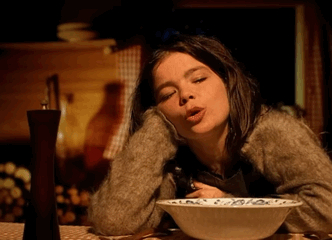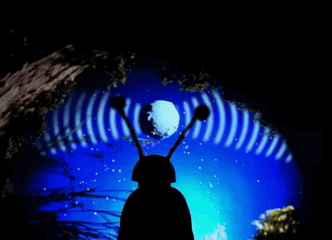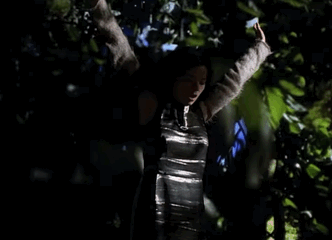#human behavior
Text
Regularly venting about other people or judging others for mistakes or miscommunications in a negative light persistently, especially within a workplace, is a behavior that I hope becomes unlearned. It's contagious and if we catch ourselves doing it, we shouldn't lean in. It creates in-groups and out-groups, creates an environment in which everyone including those venting feel unsafe, and just generally lacks a trauma-informed perspective.
I'm not talking about venting and judgement that may be a proportionate response to sexual harassment or other exploitive behavior. But someone slacking at their job duties because they're understaffed and/or overworked, misunderstanding an email or a conversation, forgetting details mentioned in a meeting, etc.—these are all very human errors which may occur especially during the flaring up of traumatic stress, anxiety, depression, illnesses or disabilities, exhaustion, side effects of medications, and so on.
Venting, casting judgement, blaming, etc. creates distrust and lack of emotional safety, fragments human groups and teams, and contributes to a really toxic environment.
22 notes
·
View notes
Text
Ok but living in America is terrifying sometimes because we had a lock down drill today at my school and I feared for my life.
The announcements were all like "emergency lock down drill"
And I was all like " what if I die today"
I shouldnt have to do that.
It was so instinctive.
189 notes
·
View notes
Text
Just one-quarter of the world population is responsible for nearly three-quarters of emissions. The authors suggest the best strategy to counter overshoot would be to use the tools of the marketing, media and entertainment industries in a campaign to redefine our material-intensive socially accepted norms.
“We’re talking about replacing what people are trying to signal, what they’re trying to say about themselves. Right now, our signals have a really high material footprint –our clothes are linked to status and wealth, their materials sourced from all over the world, shipped to south-east Asia most often and then shipped here, only to be replaced by next season’s trends. The things that humans can attach status to are so fluid, we could be replacing all of it with things that essentially have no material footprint – or even better, have an ecologically positive one.”
The Merz Institute runs an overshoot behaviour lab where they work on interventions to address overshoot. One of these identifies “behavioural influencers” such as screenwriters, web developers and algorithm engineers, all of whom are promoting certain social norms and could be working to rewire society relatively quickly and harmlessly by promoting a new set of behaviours.
The paper discusses the enormous success of the work of the Population Media Center, an initiative that creates mainstream entertainment to drive behaviour change on population growth and even gender violence. Fertility rates have declined in the countries in which the centre’s telenovelas and radionovelas have aired.
24 notes
·
View notes
Text






BJÖRK - HUMAN BEHAVIOR (1993)
59 notes
·
View notes
Text
Last week I had to go to the ER due to an unfortunate run in with a bat and worries about potential exposure to rabies. This trip to the ER was a fascinating anthropological study of human behavior while under stress. Maybe the most noteworthy thing I noticed was a man sat near me in the waiting room who brought with him a book called Classical Christianity. He read the book briefly before casting it aside to watch videos on his phone. After an hour or so of waiting (it was a very busy night in the ER we all had to wait a long time) he jumped up, book in tow, and went up to the front desk where he proceeded to yell and flip off the front desk worker before storming out of the ER in a huff. Just saying, that didn’t seem like very classical Christian behavior my dude. But hey, I’m just a godless heathen who would never dare to treat overworked and underpaid healthcare workers like that.
#classical Christianity#Christianity#er#emergency room#hospital#rabies#bat#religion#human behavior#stress#atheist#atheism#godless#good without god#leftblr#medicine#emergency department#leftist#communist#socialist#communism#socialism
53 notes
·
View notes
Text
Ethnocentrism
-- assumption that one's own culture is correct or superior
-- other ways of living are seen as wrong or ignorant
-- combated by cultural relativism
.
Patreon
#studyblr#notes#my notes#anthropologist#anthropology#anthropology notes#cultural anthropology#ethnography#culture#sociology#ethnography notes#sociology notes#cultural anthropology notes#anthropology studyblr#world cultures#social science#science#scienceblr#social psychology#social sciences#note cards#diversity#humans#human behavior
9 notes
·
View notes
Text
trying to figure out if my family is the weird one doing this or if this like a thing that people do
#we're option 1 all the way#but then I did it at somebody else's house and got a weird response#I feel like you're making less work for your host?? but maybe you're implying you got the sheets dirty somehow???#human behavior#sleeping
33 notes
·
View notes
Text

Nicolas Wright - Understanding Human Behavior: An Illustrated Guide to Successful Human Relationships, Vol. 2 - BPC Publishing - 1974
#witches#understanders#occult#vintage#understanding human behavior#understanding#human behavior#behaviour#illustrated guide#successful#human relationships#bpc publishing#1974#nicolas wright#volume 2
30 notes
·
View notes
Text
There's a phenomenon I call "break the other arm."
I go to a boss or a doctor and talk about a problem. I say which solutions I've already tried. The boss says, "Try solution C."
"But I just told you that I already tried solution C. It doesn't work."
"Try solution C again."
"I did try it again. I tried it again before I talked to you. In fact, solution C is why my left arm is in a cast right now."
"Try solution C again."
I hold up my broken left arm. "Do you understand why I don't think it's worth it to try solution C again? I'd have two broken arms!"
This seems like the sort of things psychologists should have a name for, when a proposed solution involves such high risk or high cost (time, energy, frustration) that trying it again just for show is not feasible. What sort of dissonance is going on in the boss' mind? Do they want to pretend that the problem isn't a problem? Does it feel like solution C isn't real unless it happens after they've talked about it (like how we think of our future selves as other people)? Do they want to shift blame for failure to the employee (schoolroom "They did it because you reacted to it") or find a way to take credit for success (similar to visitor effect)?
What IS this?
#psychology#human behavior#users manual: humanity#science side of tumblr#for science#do not fail me internet#original posts#break the other arm#spectrum and then some
9 notes
·
View notes
Text
The World Doesn't Accommodate to You: A Realistic Perspective on Self-Empowerment
In the realm of personal growth and spirituality, it's common to hear messages like "take control of your reality" or "manifest your desires." While these affirmations can be empowering, it's crucial to maintain a balanced perspective.
Let's be clear: the world doesn't automatically adjust to your desires, no matter how hurt you may feel or what spiritual practices you follow. Life is a complex interplay of external factors, challenges, and limitations that can't be entirely controlled.
True self-empowerment and personal growth aren't about bending the world to your will. Instead, they're about developing resilience, adaptability, and self-awareness. They equip you to navigate life's challenges effectively, using the power of your inner strength to create a positive impact on your journey.
It's essential to remember that while you can influence your thoughts, behaviors, and responses, the external world operates by its own rules. This isn't a limitation but an opportunity to embrace the unpredictability of life and find strength in facing it head-on.
So, embrace your power to change from within, but remember that the world won't always accommodate your desires. It's a beautiful journey of self-discovery and growth, regardless of external outcomes.
Here's a list of unrealistic expectations often held about how people or events should change based on our emotions, intentions, or desires:
Instant Gratification: Expecting immediate results or changes to occur as soon as we set our intentions or express our desires.
Universal Agreement: Believing that everyone should agree with your perspective, values, or desires, and that they should align their actions accordingly.
Mind Reading: Assuming that others should know what you want or need without you explicitly communicating your thoughts and feelings.
Perfection: Expecting that people and situations should be flawless or conform precisely to your ideal standards.
Control Over Others: Believing you can change people's thoughts, behaviors, or emotions solely through your intentions or desires.
Unwavering Positivity: Thinking that you should never experience negative emotions or challenges and that you can maintain a constantly positive mindset.
Blame Shifting: Holding others responsible for your happiness or attributing your emotional well-being to external factors.
One-Size-Fits-All Solutions: Assuming that what works for one person or situation will automatically work for everyone and ignoring individual differences and complexities.
Ignoring Effort: Overlooking the effort, work, and time required to achieve your goals and expecting them to manifest effortlessly.
Absolute Control: Believing that you can control or predict every aspect of life, including external events and other people's decisions.
Immunity from Setbacks: Feeling that you should be exempt from life's challenges or hardships because you've set positive intentions or expressed desires.
Ignoring External Factors: Disregarding external factors beyond your control, such as economic conditions, social influences, or natural occurrences.
Comparing to Others: Comparing your progress or experiences to those of others and expecting similar outcomes regardless of individual circumstances.
Overlooking Self-Responsibility: Neglecting your role in personal growth and change by placing the entire burden on external factors.
Rejection of Negative Emotions: Denying or suppressing negative emotions rather than acknowledging them as a natural part of the human experience.
These unrealistic expectations can lead to frustration, disappointment, and a sense of powerlessness. It's essential to maintain a balanced perspective, embrace personal responsibility, and recognize the limits of control in various life situations.
#witchblr#witchcraft#spiritual growth#witches of tumblr#spirituality#self awareness#healing#self care#psychology#self improvement#self reflection#self discipline#self development#human behavior
15 notes
·
View notes
Text
"The Duality of Beauty and Decay: Oscar Wilde's Masterpiece, The Picture of Dorian Gray"

Oscar Wilde's "The Picture of Dorian Gray" unfolds as a decadent tapestry woven with the threads of beauty, morality, and the consequences of unchecked hedonism. Published in 1890, this novel is a timeless exploration of the corrupting influence of aestheticism and the intricate dance between art and morality. The title alone evokes a sense of mystery and allure, foreshadowing the dark and enigmatic journey that readers are about to embark upon.
At the heart of the narrative is the titular character, Dorian Gray, a young and exceptionally handsome man whose portrait, painted by the talented artist Basil Hallward, captures the essence of his youth and beauty. Dorian becomes infatuated with the idea of eternal youth and makes a Faustian pact—his portrait will age and bear the consequences of his immoral actions, while he remains untouched by the ravages of time.
The novel explores the concept of aestheticism, a philosophy championed by Wilde himself, which emphasizes the pursuit of beauty and the rejection of conventional morality. Dorian Gray, initially an emblem of aesthetic perfection, descends into a life of decadence, indulging in every pleasure the world has to offer without regard for the ethical ramifications. Wilde's razor-sharp wit and satirical commentary on the superficiality of society are evident as Dorian navigates the underbelly of Victorian London.
Wilde's prose is a marvel, a poetic symphony that captures the essence of his aesthetic philosophy. The novel is replete with epigrams and witticisms that showcase Wilde's keen observation of human behavior and society's obsession with appearances. The writing is both ornate and cutting, creating a delightful tension that mirrors the duality inherent in the narrative.
The characters surrounding Dorian Gray add depth to the exploration of morality and corruption. Lord Henry Wotton, a charismatic and cynical aristocrat, serves as the catalyst for Dorian's moral descent. His aphorisms and influence on Dorian encapsulate the allure of a life unfettered by societal norms. Basil Hallward, the artist who initially captures Dorian's beauty, becomes a symbol of the internal struggle between art and morality.
The narrative is enriched by the symbolic significance of the portrait itself. As Dorian's sins accumulate, the portrait undergoes a grotesque transformation, reflecting the moral decay hidden beneath the veneer of youth and beauty. The portrait becomes a haunting reminder of the consequences of a life lived without moral restraint, a visual representation of the soul's degradation.
"The Picture of Dorian Gray" is not merely a cautionary tale but a profound exploration of the human condition. Wilde challenges the superficiality of societal values, prompting readers to confront the inherent tension between aesthetic pursuits and ethical responsibilities. The novel's themes remain relevant, inviting contemporary readers to reflect on the price of unchecked desire and the pursuit of an idealized, hedonistic existence.
In conclusion, Oscar Wilde's "The Picture of Dorian Gray" stands as a literary masterpiece that transcends its Victorian origins. The novel's exploration of beauty, morality, and the consequences of decadence remains as relevant today as it was over a century ago. Wilde's unparalleled wit, coupled with the timeless relevance of the novel's themes, solidify its place in the literary canon as a work that continues to provoke thought and captivate readers with its exploration of the eternal struggle between the allure of beauty and the inevitability of moral decay.
Oscar Wilde's "The Picture of Dorian Gray" is available in Amazon in paperback 11.99$ and hardcover 19.99$ editions.
Number of pages: 188
Language: English
Rating: 10/10
Link of the book!
Review By: King's Cat
#Oscar Wilde#The Picture of Dorian Gray#Aestheticism#Morality#Hedonism#Faustian pact#Beauty#Decay#Victorian society#Duality#Decadence#Basil Hallward#Lord Henry Wotton#Wit#Satire#Epigrams#Human behavior#Superficiality#Symbolism#Aphorisms#Internal struggle#Visual representation#Soul's degradation#Cautionary tale#Ethical responsibilities#Contemporary relevance#Price of desire#Idealized existence#Hedonistic pursuit#Human condition
8 notes
·
View notes
Text
"Between stimulus and response there is a space. In that space is our power to choose our response. In our response lies our growth and our freedom.”
- Victor Frankl
#psychology#well being#emotions#emotions are data#our actions are separate from our emotions#behaviors#human behavior#mindfulness#personal growth
30 notes
·
View notes
Quote
What a frightening thing is the human, a mass of gauges and dials and registers, and we can read only a few and those perhaps not accurately.
The Winter of Our Discontent, John Steinbeck
#The Winter of Our Discontent#john steinbeck#books#quotes#classic quotes#classic books#classic literature#classic novels#american#American Writers#American literature#Great Writers#read this#great books#humans#human behavior#classicbooks101#psych#psychology#JohnSteinbeck
41 notes
·
View notes
Quote
People are strange: They are constantly angered by trivial things, but on a major matter like totally wasting their lives, they hardly seem to notice.
Charles Bukowski
#Charles Bukowski#procrastination#waiting time#time#human behavior#sociology#psychology#qqq#quotes#quote
166 notes
·
View notes
Text

#mental health#mental illness#recovery#recovery inspiration#love#self improvement#self care#note to self#positive mental attitude#trauma#human behavior#human suffering#denial#ignored#actually borderline
45 notes
·
View notes
Text
Us: *listening to Björk's "Human behavior"*
Girlfriend who is a collection of muppets in a clever girl suit: "I like to imagine that Björk is an Irken when she's singing that."
Us: *listens to song for a bit while considering that statement* "Do you mean she's not?"
3 notes
·
View notes